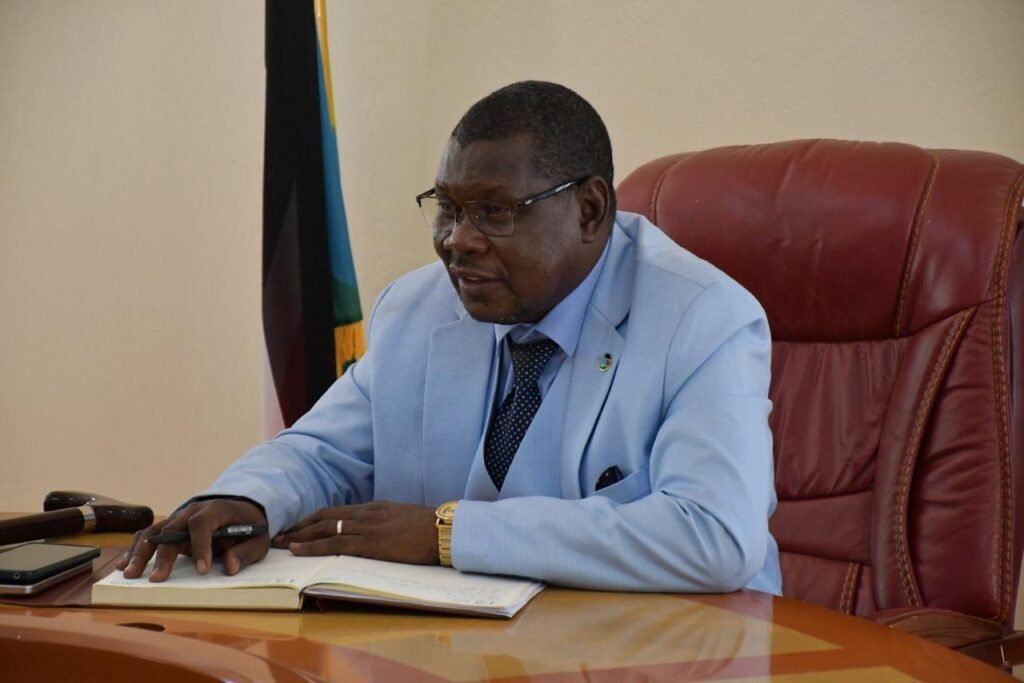Western Equatoria State has approved the commencement of a polio vaccination campaign, with health teams set to roll out the exercise beginning tomorrow in Yambio and Ezo counties.
The decision comes after health authorities confirmed a resurgence of the virus in Western Bahr el Ghazal last month, prompting urgent preventive measures across at-risk states.
Briefing Governor Barrister James Al-Taib Berapai on Monday, Mrs. Rose Obede Isaac, Director General at the Western Equatoria State Ministry of Health, said the campaign is part of a national response coordinated by the National Ministry of Health in Juba, in collaboration with partners such as UNICEF and the World Health Organization (WHO).
“The National Ministry of Health has selected four counties in Western Equatoria as part of this campaign. Due to insecurity in Tombura and Nagero, we will begin in Yambio and Ezo tomorrow,” Mrs. Obede explained.
Adding that “We call on the state government to restore peace and stability so that every child in every county can be reached.”
However, Governor of Western Equatoria State, Barrister James Al-Taib welcomed the campaign, thanking both the national ministry and international partners for their swift intervention to the state.
“This campaign is not just about polio prevention it is about safeguarding the future of our children. My government remains committed to strengthening public health systems, ensuring that every citizen feels the impact of good governance,” Governor Al-Taib said.
He emphasized that effective public health, community safety, and active government institutions are the cornerstones of stability and development in Western Equatoria.
On his part, Mr. Sisto Angelo, from the Expanded Program on Immunization at the National Ministry of Health, said Western Equatoria is among 40 counties across South Sudan identified as high risk due to low vaccination coverage and proximity to Western Bahr el Ghazal, where the outbreak was detected.
“Our target is over two million children across the country. This campaign is critical because polio does not respect borders it spreads quickly where immunity is weak,” Angelo explained.
According to the WHO, South Sudan was declared polio-free in 2020, but recent cases across the region including Sudan, Central African Republic, and Democratic Republic of Congo have heightened concerns.
Weak health infrastructure, insecurity, and large numbers of displaced persons have made South Sudan vulnerable to resurgence.
For communities in Western Equatoria, the campaign offers renewed hope.
Many parents still recall the devastation polio caused in earlier decades, leaving children permanently disabled.
Mary Edward, a mother of four in Yambio who spoke to the media, said she will ensure her children are vaccinated.
“We don’t want to see children crippled again. If this vaccine is free and can protect them, then it is a blessing for us,” she said.
Health experts also stress that vaccination is the most effective tool to prevent outbreaks. By reaching children under the age of five, the campaign aims to build herd immunity, protect vulnerable populations, and reduce the burden on an already strained health system.
Humanitarian organizations working in Western Equatoria argue that peace and access will be key to the campaign’s success.
Unless insecurity in Tombura and Nagero counties is addressed, thousands of children risk being left behind, potentially undermining the overall effectiveness of the effort.
Despite these challenges, state authorities remain optimistic. “This is a lifesaving campaign,” Mrs. Obede reiterated. “If we succeed, we will not only protect our children today but also secure the future of Western Equatoria for years to come.”
The vaccination drive will begin tomorrow, with mobile health teams and local volunteers moving house-to-house to ensure every eligible child is reached.
